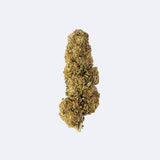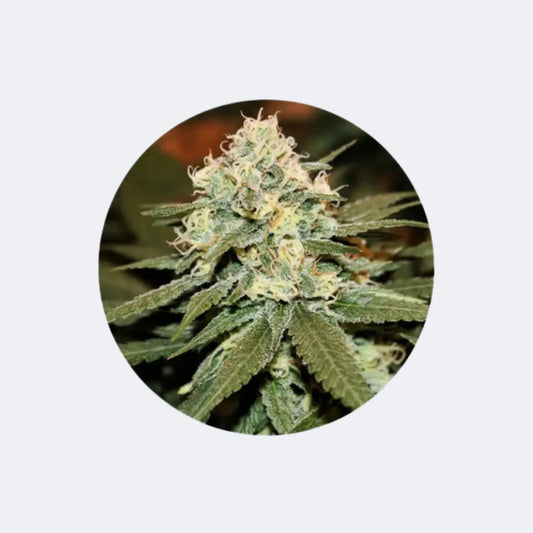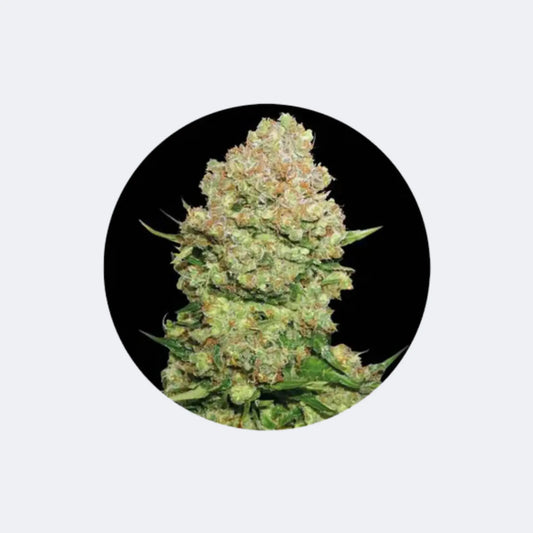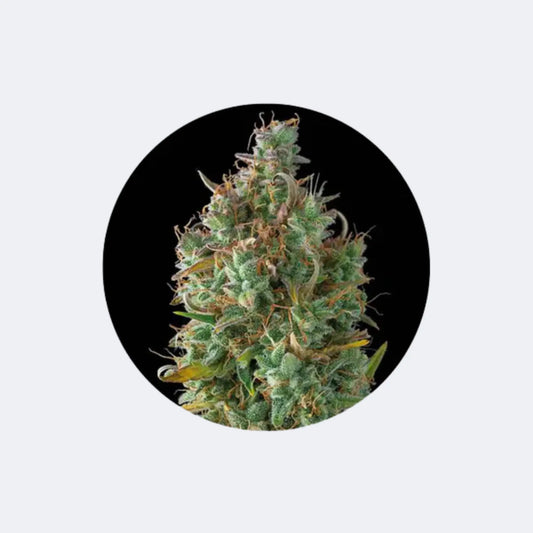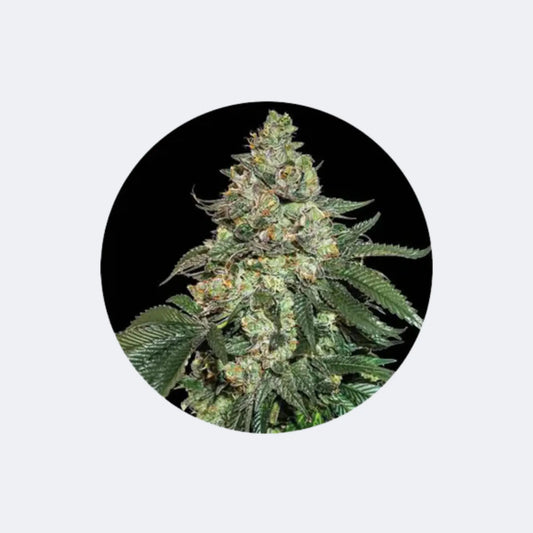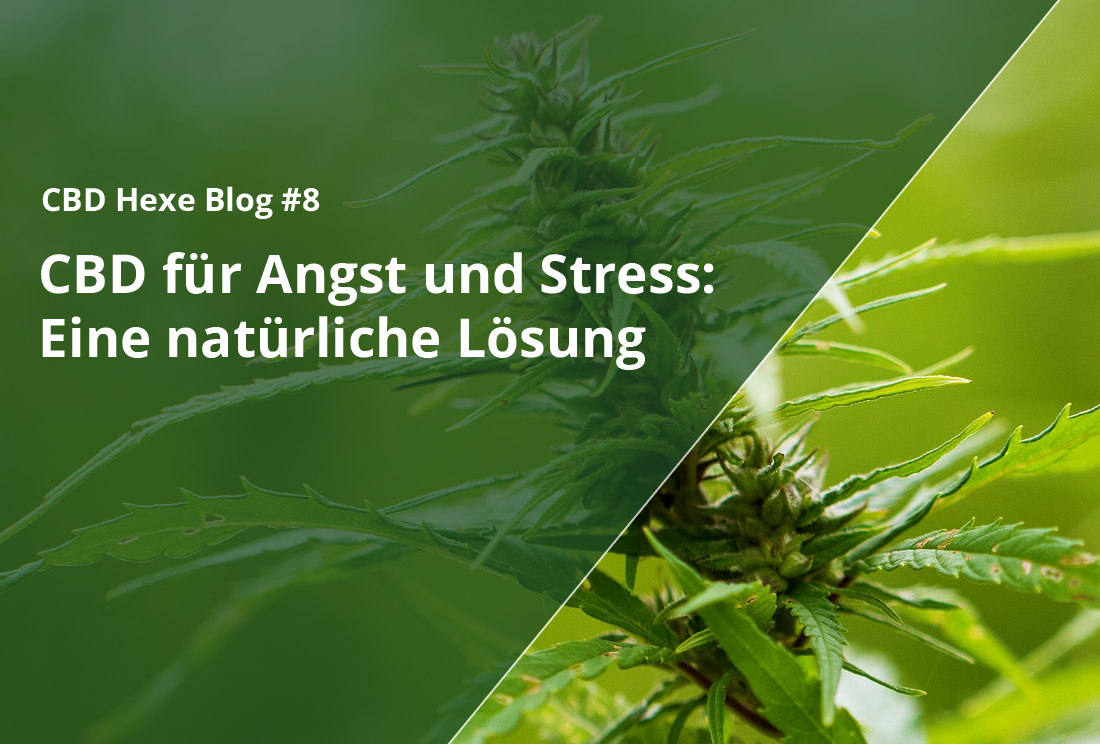
CBD for Anxiety and Stress: A Natural Solution
Maximilian BruderShare blog post
In this blog post, you'll learn all about CBD as an anxiety reliever. We'll explore how CBD can help with anxiety disorders, its anti-anxiety properties, its impact on the psyche, and daily use. Discover how CBD can help with anxiety:
Introduction
- Introduction of the topic
- Importance of CBD as a possible anxiety reliever
- Overview of the main questions of the article
Can CBD help with anxiety disorders?
- How CBD can help with anxiety disorders
- Studies and research results
- User testimonials
Does CBD relieve anxiety?
- The science behind CBD as an anxiety reliever
- Mechanisms of the anxiolytic effect of CBD
- Dosage and application recommendations
How does CBD affect the psyche?
- CBD and its influence on the psyche
- Possible positive effects on mood and well-being
- Precautions for mental illness
Can I take CBD every day?
- Daily use of CBD
- Potential long-term effects and safety
- Advice on the correct dosage
Who should not take CBD?
- Contraindications and potential risks
- Drug interactions
- Special situations and groups that should exercise caution
Conclusion
- Summary of key findings
- Emphasis on the role of CBD as a possible anxiety reliever
- Outlook on future research and application of CBD
Anxiety is a feeling many of us know all too well. It can affect us in a variety of situations and hold us captive. But what if there was a natural way to alleviate this feeling and improve our state of mind? That's where CBD comes in.
In this blog post, we'll take a detailed look at CBD and its potential role as an anxiety reliever. You'll learn how CBD can help with anxiety disorders, the scientific evidence behind it, and how to use it safely.
If you're curious about how CBD might reduce your anxiety and whether it might be an option for you, then you've come to the right place. Let's delve into the world of CBD together and explore how it can impact our well-being.
Can CBD help with anxiety disorders?
Now let's take a closer look at whether CBD can actually play a role in managing anxiety disorders. Here are some aspects we'll explore:
How CBD can help with anxiety disorders
CBD has the potential to relieve anxiety by interacting in various ways within our bodies. Here are some of the mechanisms by which CBD may exert its anti-anxiety effects:
- Influence on the endocannabinoid system: CBD influences the endocannabinoid system, which is responsible for regulating mood, stress responses, and anxiety. It may help bring this system into balance.
- Serotonin receptors: CBD may influence the activity of serotonin receptors, which play a role in regulating anxiety and depression. This could help improve mood and reduce anxiety.
- Neuroprotective properties: Some studies suggest that CBD has neuroprotective properties that could potentially protect against neurological causes of anxiety.
Studies and research results
The scientific community has shown growing interest in the potential benefits of CBD in treating anxiety disorders. Several promising studies have already been conducted. Here are some of the findings:
- One study found that CBD reduced symptoms of social anxiety disorder in participants.
- Another study found that CBD affected activity in the limbic and paralimbic brain, regions associated with anxiety.
- There are also numerous testimonials from people who have successfully used CBD to manage anxiety. These personal stories demonstrate that CBD can be a valuable aid for some people.
User testimonials
It's always inspiring to hear how CBD has positively impacted people's lives. Here are some user experiences:
- Tim M. "Since using CBD, I have fewer panic attacks and feel more relaxed overall."
- Jonas V. "CBD helped me overcome my social anxiety and feel more confident again."
- Ali B. "I find that CBD helps me cope better with stressful situations without feeling so overwhelmed."
These experiences are of course individual, but they show that for some people, CBD can bring about a positive change in how they deal with anxiety disorders.
Does CBD relieve anxiety?
Let's now take a closer look at whether CBD actually has an anti-anxiety effect. Here are some key aspects we'll discuss:
The science behind CBD as an anxiety reliever
Before we dive into the details, it's important to understand that CBD's anti-anxiety properties are backed by science. Here are some explanations of how CBD has been proven to relieve anxiety:
- Interaction with receptors: CBD interacts with certain receptors in the brain, including serotonin receptors. This can help regulate mood and reduce anxiety.
- Neurological effects: CBD influences regions of the brain involved in the development of anxiety. This can alleviate the neurological causes of anxiety.
Mechanisms of the anxiolytic effect of CBD
Now that we've covered the scientific basis, let's look at how CBD can actually relieve anxiety. Here are some mechanisms that have been considered:
- Relaxation: CBD can help promote relaxation by reducing muscle tension and easing the overall stress response.
- Reducing excessive thinking: People with anxiety tend to engage in excessive rumination. CBD may help break this mental cycle.
- Sleep improvement: Good sleep is crucial for managing anxiety. CBD can improve sleep quality and thus help relieve anxiety.
Dosage and application recommendations
If you're considering CBD for anxiety relief, proper dosage and application are crucial. Here are some recommendations:
- Start low: Always start with a low CBD dosage and slowly increase it as needed.
- Consult an expert: If you are unsure about how much CBD to take, it is advisable to consult a doctor or expert.
- Consistency: Regular use of CBD can be more effective than sporadic use. Consistency is often key to managing anxiety.
Now that you know more about the anti-anxiety properties of CBD and how it can work, we can address further questions.
How does CBD affect the psyche?
Hey, let's take a closer look at how CBD can affect our psyche. Here are some key aspects we'll discuss:
CBD and its influence on the psyche
CBD can have a wide range of effects on our psyche. Here are some ways it can influence our mental state:
- Calming effect: Many people report a calming effect from CBD. It can help reduce stress and promote general relaxation.
- Anxiety relief: As discussed earlier, CBD may help reduce anxiety symptoms in some people.
- Mood improvement: Some users report improved mood and increased well-being after taking CBD.
Possible positive effects on mood and well-being
CBD may also help improve our mood and overall well-being. Here are some of the potential benefits:
- Reducing stress: CBD can help reduce stress responses, which can have a positive effect on our mood.
- Support for depression: Some studies suggest that CBD may be helpful in managing depression by promoting the production of happiness hormones.
- Better sleep quality: Restful sleep is crucial for a positive mood and well-being. CBD can help improve sleep quality.
Precautions for mental illness
While CBD can have positive mental health effects, it's important to note that it's not suitable for everyone, especially those with serious mental illnesses. Here are some precautions:
- Consult a professional: If you already suffer from a serious mental illness, it is important to consult a professional before using CBD.
- Drug interactions: CBD may interact with certain medications, especially psychotropic drugs. Be sure to discuss this with your doctor.
- Individual response: Everyone reacts differently to CBD. It's important to carefully monitor your response and make adjustments as needed.
CBD can be a valuable mental support, but it is crucial to use it responsibly, especially if you already have mental health problems.
Who should not take CBD?
It's important to understand that CBD isn't suitable for everyone. Here are some key aspects we'll discuss:
Contraindications and potential risks
There are situations and health conditions where taking CBD is not recommended and there are potential risks. Contraindications include:
- Pregnancy and breastfeeding: The effects of CBD on pregnant women and the unborn child have not yet been sufficiently researched. During breastfeeding, CBD can pass into breast milk.
- Liver disease: CBD is broken down in the liver, so people with severe liver disease should exercise caution.
- Allergies: Some people may have allergic reactions to CBD. Monitor your reaction carefully when taking it for the first time.
Drug interactions
CBD can interact with certain medications, increasing or decreasing their effects. This particularly applies to medications metabolized by the liver. Here are some examples:
- Blood thinners: CBD can increase the effects of blood thinning medications, which can lead to increased bleeding risks.
- Antiepileptic drugs: In some people, CBD may interfere with the effectiveness of antiepileptic drugs. It's important to discuss this with a doctor.
- Psychotropic drugs: As mentioned above, CBD can interact with psychotropic drugs. If you are taking such medications, be sure to consult your doctor.
Special situations and groups that should exercise caution
There are also certain situations and population groups that should exercise caution when using CBD:
- Children and adolescents: The long-term effects of CBD on brain development in children and adolescents have not yet been sufficiently researched.
- Older adults: Older people may be more sensitive to CBD and should therefore start with lower doses.
- Driving test: In some regions, CBD use can result in a positive drug test. If you're required to take a drug test for work, be sure to check this out.
It's crucial that you carefully consider your individual circumstances and health conditions before taking CBD and consult a doctor or professional if necessary. CBD isn't suitable for everyone, and safety always comes first.
Conclusion
We've reviewed a lot of information about CBD and its potential role in managing anxiety and depression. Let's take a final look at the key takeaways:
Summary of key findings
- CBD has the potential to relieve anxiety by acting on the endocannabinoid system, serotonin receptors, and other mechanisms in the body.
- There are promising studies and reports that indicate that CBD can be helpful for anxiety disorders.
- CBD can have a calming effect that can help manage stress and improve mood.
- It is important to consider individual circumstances and health conditions before taking CBD and, if necessary, consult a doctor.
Emphasis on the role of CBD as a possible anxiety reliever
While CBD isn't a miracle cure and may not be suitable for everyone, we emphasize its role as a potential anxiety reliever. There are numerous reports and research evidence suggesting that it can be a valuable support for some people.
Outlook on future research and application of CBD
Research on CBD is constantly evolving, and much remains to be discovered. In the future, we may learn more about how CBD can best be used to manage anxiety and depression. We encourage you to keep an eye on developments in this field and benefit from new findings.
Finally, we would like to emphasize the importance of using CBD responsibly and always seeking professional advice if you have any questions or concerns. CBD can be a valuable supplement, but individual use should be carefully considered. We hope this blog post has helped you learn more about the potential and limitations of CBD in managing anxiety and stress.

